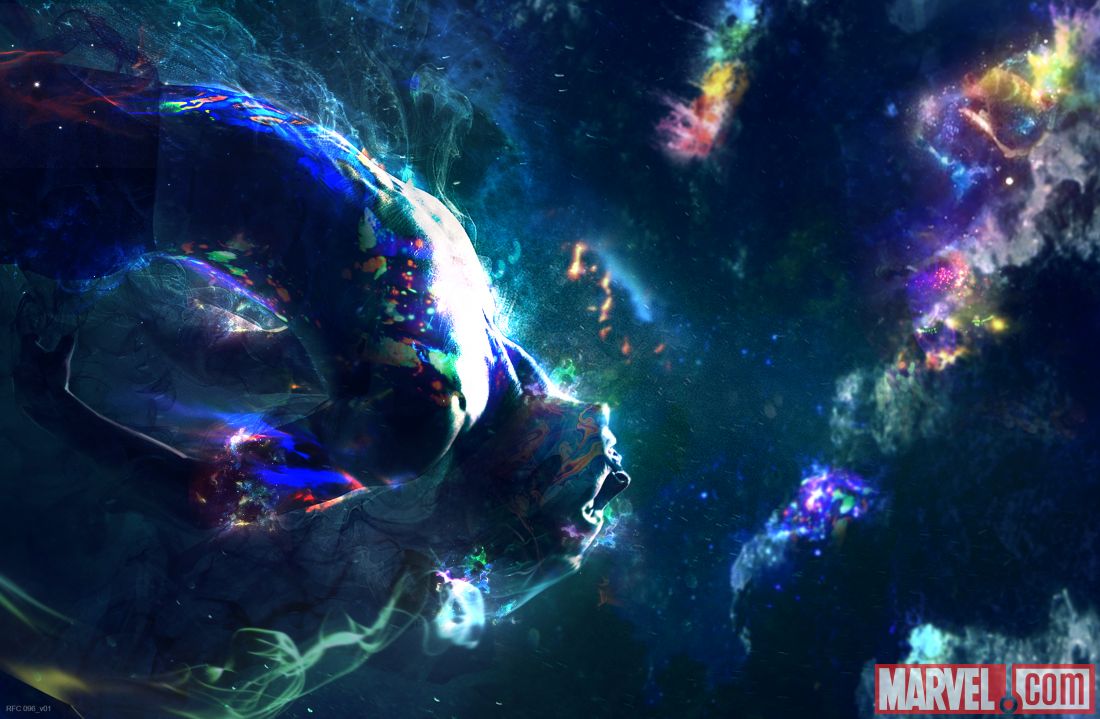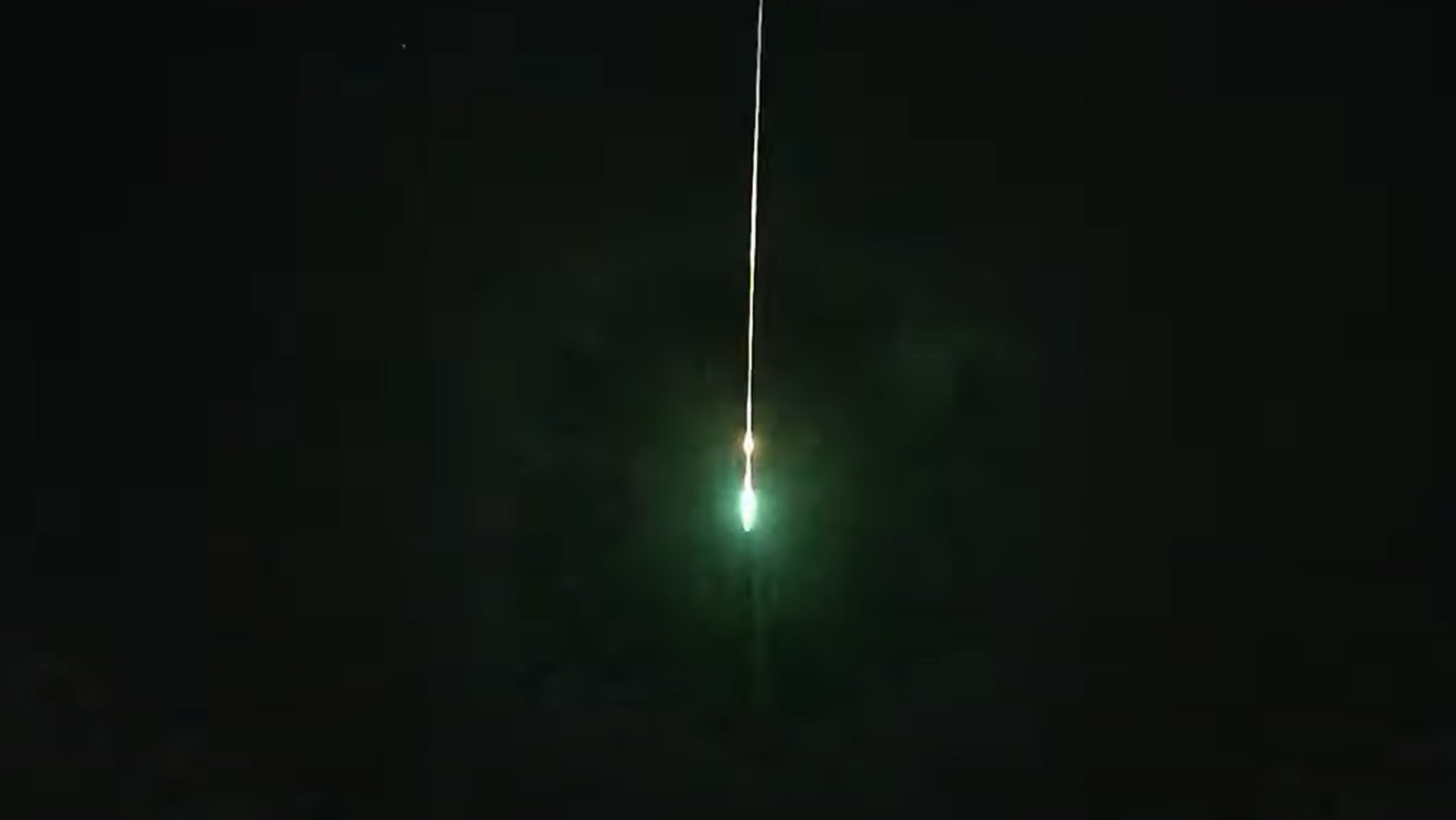'Doctor Strange' Astrophysicist Talks Mind-Bending Marvel Science

With "Doctor Strange," coming to theaters this Friday (Nov. 4), Marvel is taking its cinematic universe in a more mystical direction that may seem to diverge from the space travel, gods-as-aliens and DNA-based superpowers of the previous movies and TV shows.
"Doctor Strange" stars Benedict Cumberbatch as a surgeon who, after a terrible injury, learns how to be a powerful mystic sorcerer and cast his mind into other dimensions. The storyline includes more elements of fantasy than with the stories of previous Marvel superheroes to make a movie appearance, such as Iron Man, Captain America and the spacefaring Guardians of the Galaxy. But the film still has something to offer for those with an interest in astrophysics and philosophy of science.
Space.com talked with Adam Frank, an astrophysicist at the University of Rochester in New York who consulted on "Doctor Strange," about how the movie's magic of the mind fits in with the more science-grounded (comparatively!) worlds introduced previously, the concept of the multiverse and what science philosophy has to do with superheroes. [5 Reasons We May Live in a Multiverse]
Space.com: How did you get involved with "Doctor Strange"?
Adam Frank: I'm a practicing astrophysicist; I do computational astrophysics studies, star formation, exoplanets and things like that. I've been writing about science and culture for a long time, and in 2007, I wrote a book on science and religion.
Someone put me in touch with Scott [Derrickson, the director of "Doctor Strange"], because he is religious but he has a strong respect for science, and I'm an atheist and I have a strong interest in human spirituality and respect for what goes on in human spiritual thinking. That's the conversation between us that has lasted years.
When we started with "Doctor Strange," he contacted me and asked if I'd be interested. And, of course, I was like, "Oh, yeah…" but inside, I was like, "Oh my God!" The thing you should also know is that I'm a massive Marvel fan; from age 14 on, I have been reading Marvel forever. And so we talked a little bit about the movie, and, of course, the real dilemma for "Doctor Strange" is that here is a character whose powers are based in mysticism and the occult, and you have to fit him in a cinematic universe that is very science-y. [You have to tell a story that] does justice to the character, but also doesn't mess up the scientific universe they created.
Breaking space news, the latest updates on rocket launches, skywatching events and more!
Space.com: So how did you do that?
Frank: There are a lot of ways you could think about where his magic powers come from, and you could do things like, "Oh, it's about the neurotransmitters." But I didn't want to go down that road. Because it's about mystery. People often want to talk about the Marvel Cinematic Universe and science, but here's a place where really, what we're looking at is the Marvel Cinematic Universe and philosophy. The real question here is the mind-body problem, which goes back to Plato and Aristotle, but really to Descartes. What is the relationship between [the] mind — not just our thinking, but our subjective experience of the world — and matter? Many people in science will come at a reductionist perspective — that you are nothing more than your neurons, and your neurons are nothing more than quarks, so that the fundamental objects and their rules determine everything that happens on larger structures.
But a nonreductionist perspective says no, there's actually something more going on there — that mind experience cannot be reduced just to gears in your head; there is some way in which there's something fundamental going on about the universe at the level of experience that has to be included in the counts of atoms. That's the way we talked about this; that's the way in for "Doctor Strange."
We don't have a scientific account of consciousness, of what it means to have a subjective experience. So that's a place where you can allow these other dimensions, and other kinds of knowledge, other maps of the world that Doctor Strange is drawing from. That's how to bring it in. To me, the interesting thing that we talked about was how to use this question of [the] mind, of reductionism and nonreductionism, as the source of Doctor Strange's abilities.
Space.com: What about the concept of the multiverse?
Frank: The scientific idea of the multiverse — there's a couple of different multiverses in science. [One] idea for a multiverse is the many-worlds interpretation of quantum mechanics, where every time a quantum event happens, the universe splits off into a parallel version of itself, and each one goes on evolving and splitting and evolving and splitting. This idea of extra, other dimensions, what you can think of as other universes — we talked a lot about that idea. And they draw on that pretty heavily [in the movie].
The comic book version of Doctor Strange, back in the '60s — which was all trippy, definitely a countercultural thing going on from the '60s — had this idea of dimensions, and here they make that a little more explicit. In science, in physics, we can think of each of these universes as being a dimension in an infinite-dimensional abstract space. That's [how] the many-worlds interpretation views it. They're just playing with that idea, and building a beautiful visual representation of this. A lot of the movie is concerned with what's going on in these different dimensions and Doctor Strange being in them. [Comic Con Cosplay: Photos of the Coolest Costumes]
Space.com: Do you think that this loose grounding in the ideas of science is something that really appeals to moviegoers right now?
Frank: There's the very famous essay by C. P. Snow about the two cultures: the culture of science and the culture of humanities. It goes way back. And the thing is, now, there aren't two cultures anymore. The fruits of science turn into the drivers of culture 15 minutes after they're discovered. We're living in an age of miracles, and it's just going to get crazier. Artificial intelligence, genetics — people expect to see amazing things happen from science. So by grounding your stories enough in science to not so much make them plausible, but to allow that science to open up new possibilities — people are used to that in their lives. So I think it makes sense to them, and it's exciting to them — and scary.
The great thing about the Marvel Cinematic Universe, speaking as a scientist, is the respect they have for science. It's not necessarily that they're using actual science. It's a superhero movie — what do you expect? But they build a coherent and consistent universe that respects the scientific process and that uses enough of real science to make things plausible or build off them. I always like, in the first "Avengers," [that] the movie opens up with the "Dark Energy Research Institute." And then, after that, you never hear about dark energy again. But as a scientist, I'm like, "Oh, look! They used the right term!"
Space.com: Is there any other Marvel area where the science themes in "Doctor Strange" could fit?
Frank:In general, the multiverse idea is very much built into the Marvel comics; Marvel has Earth 226A, Earth 213B … You can expect it to show up in different places. What's interesting about the Marvel universe is, they would have these characters which would be the embodiment of impersonal forces. There's a character who's like, "I'm Eternity," and he's represented as this outline. Marvel has no problem with taking broad, sweeping philosophical abstractions and somehow storifying them, which is awesome. And in some sense, that's also what's happening here: You're taking this idea of [the] mind. "Mind" is a thing in the universe — not just a derivative of other things in the universe, but somehow, mind is being an essential player in the universe, and they're storifying it. They're making it an actor.
Space.com: Are there any visual "Easter eggs" in the movie based around astrophysics that people should look out for?
Frank: This is something that the viewers will have to see for themselves. As a scientist, I deal with a lot of very abstract ideas about space and time, the structure of space. There's an interesting idea I'm coming across now in my thinking about quantum gravity. I don't do quantum gravity, but I think about it; I talk to people who do. [It's] the idea of the basal structure, the fundamental structure that is responsible for reality. There's ways in which the way they play the visuals in the movie — and people will understand what I'm saying when they see it — that really reminded me of atoms of space-time, or the fundamental nature of how you unzip reality. Some of that stuff was really evocative for me.
This interview has been edited for length.
Email Sarah Lewin at slewin@space.com or follow her @SarahExplains. Follow us @Spacedotcom, Facebook and Google+. Original article on Space.com.
Join our Space Forums to keep talking space on the latest missions, night sky and more! And if you have a news tip, correction or comment, let us know at: community@space.com.

Sarah Lewin started writing for Space.com in June of 2015 as a Staff Writer and became Associate Editor in 2019 . Her work has been featured by Scientific American, IEEE Spectrum, Quanta Magazine, Wired, The Scientist, Science Friday and WGBH's Inside NOVA. Sarah has an MA from NYU's Science, Health and Environmental Reporting Program and an AB in mathematics from Brown University. When not writing, reading or thinking about space, Sarah enjoys musical theatre and mathematical papercraft. She is currently Assistant News Editor at Scientific American. You can follow her on Twitter @SarahExplains.
